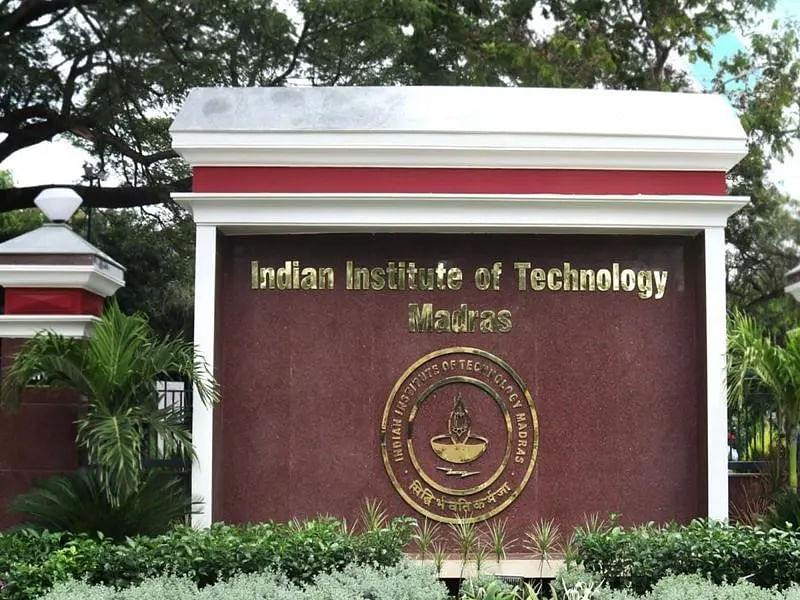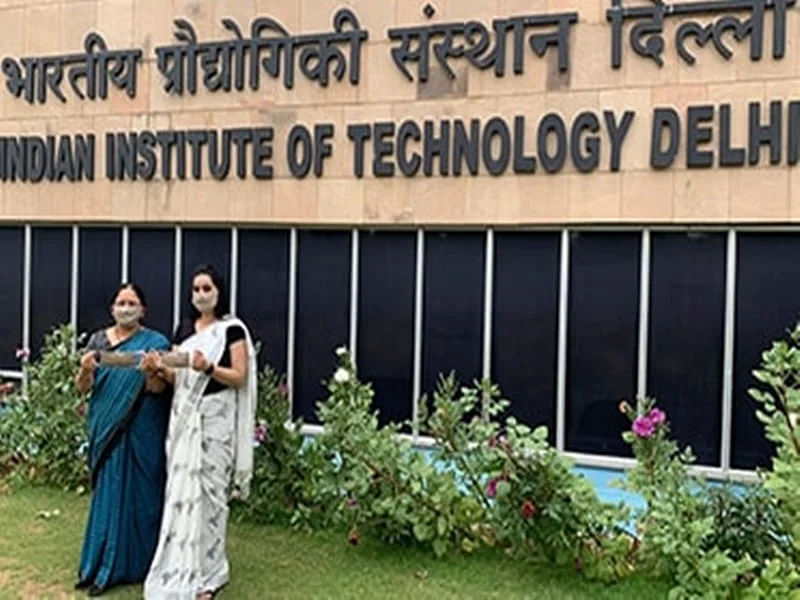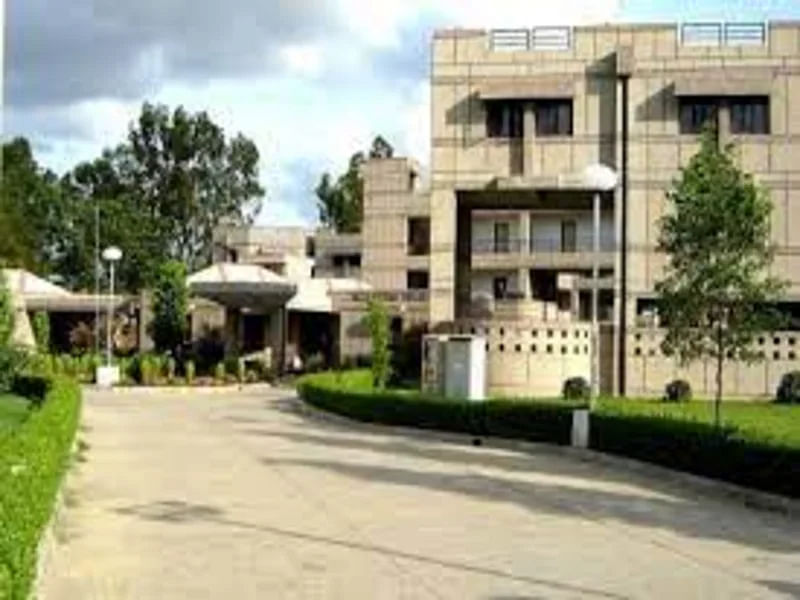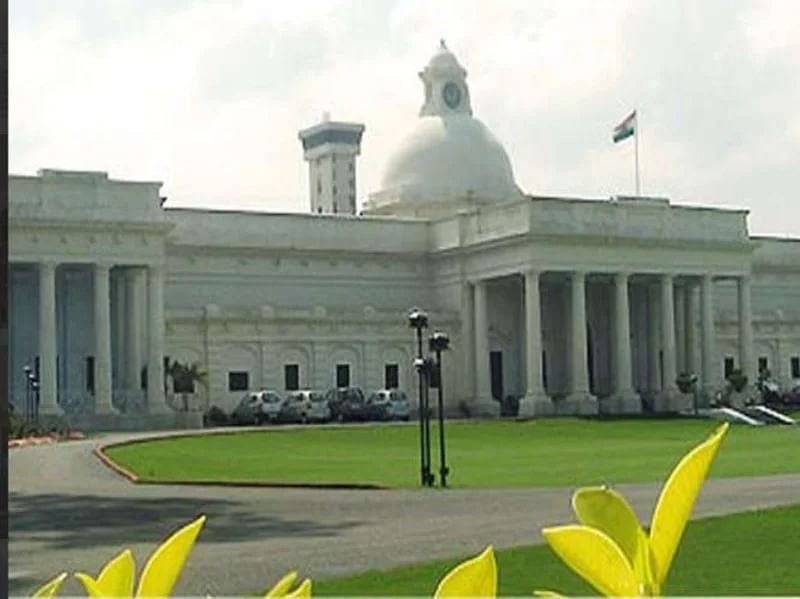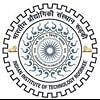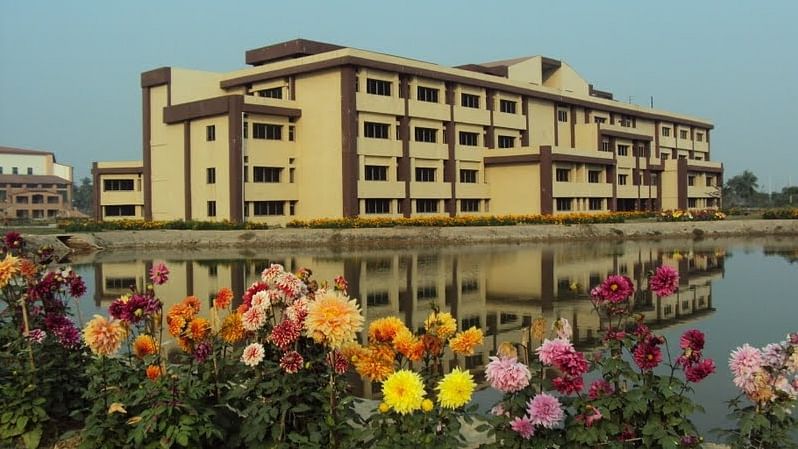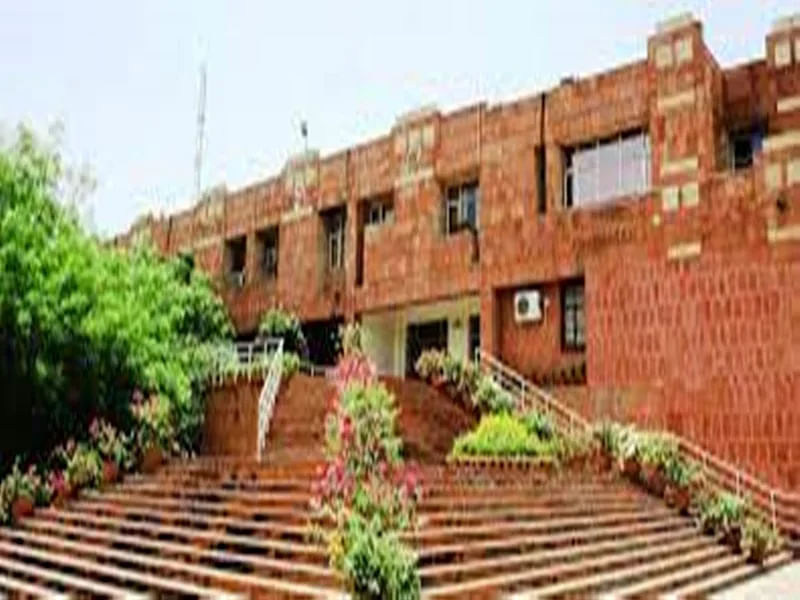B.Tech Subjects and Syllabus
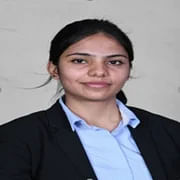
Latest Updates for BTech
- 17 April 2024 :
JEE Advanced 2024 registration for foreign nationals is ongoing and the last date to register is May 7, 2024.
- 17 April 2024 :
JEE Main 2024 session 2 official answer keys will be released soon by NTA.
- 15 April 2024 :
JEE Advanced application form 2024 will be available from Apr 27, 2024. The last date to apply is May 7, 2024.
- 19 March 2024 :
IMU CET application form has been released and the last date to apply is May 5, 2024.
B.Tech subjects focus on fundamental engineering ideas in particular fields of study like fashion technology, textile technology, biotechnology, etc. BTech syllabus is covered under 8 semesters which contains core subjects and elective subjects. The B.Tech syllabus varies depending on each specialization although the subjects remain common in the first year as a foundation for every branch.
BTech core subjects include Mathematics, English, Engineering Physics, Computer Programming, Basics of Electronics, Engineering Chemistry, Engineering Mechanics, etc. BTech elective subjects vary as per the specialization selected by the students. Finite Element Analysis, Robotics, and Automation, Pavement Design, Cloud Computing, Data Mining, Data Analytics, Internet of Things, etc., are a few of the elective subjects in BTech course.
Table of Content
- B.Tech Subjects
- Semester Wise B.Tech Syllabus and Subjects
- Specialisation Wise BTech Syllabus and Subjects
B.Tech Subjects
B.Tech subjects provide fundamental engineering concepts like mathematics, physical phenomena, engineering drawing, coding basics, etc., combined with specialized fields of study. BTech course aims to make graduates apply engineering concepts to develop technically sound solutions in any specialized domain and enhance productivity. Below listed are a few core and elective subjects covered in BTech syllabus:
B.Tech Core Subjects
Listed below are some of the core B.Tech subjects that the students study in first year as common subjects along with topics covered in each subject:
| BTech Core Subjects | Topics Covered |
| English | Grammar and syntax, Writing skills, Communication skills, Reading comprehension, Technical writing, Oral presentation, Business communication, etc. |
| Basic Electronics | Ohm's Law, Kirchhoff's Laws, Circuit analysis techniques, Diodes and transistors, Amplifiers, Operational amplifiers, Semiconductor devices, Analog electronics, etc. |
| Mathematics | Calculus, Differential equations, Linear algebra, Discrete mathematics, Numerical methods, Complex analysis, Vector calculus, Partial differential equations, etc. |
| Engineering Physics | Mechanics, Thermodynamics, Optics, Waves and vibrations, Electromagnetism, Solid-state physics, Nuclear physics, etc. |
| Basic Electrical Engineering | Electric circuits, AC and DC circuit analysis, Inductance and capacitance, Electrical machines, Power systems, Magnetic circuits, Measurement and instrumentation, etc. |
| Computer Programming | Programming fundamentals, Functions and procedures, Data types and structures, Algorithms and problem-solving, Debugging techniques, Software development life cycle, etc. |
| Engineering Mechanics | Statics, Dynamics, Equilibrium of particles and rigid bodies, Centroids and centers of gravity, Moments of inertia, Analysis of structures, Fluid statics, Mechanical vibrations, etc. |
| BTech Admission Process | BTech Fees in India |
B.Tech Elective Subjects
An elective course is a subject from the block of electives that must be taken within the volume established in the curriculum. The elective subjects in BTech are listed below as per the specialization:
| Specialization | BTech Elective Subjects | Topics Covered |
| Civil Engineering |
|
Pavement materials, Design methodologies, Maintenance strategies, Traffic considerations, Geotechnical aspects, Drainage considerations, Construction techniques, Geological considerations, High-performance concrete, Sustainable construction materials, etc. |
| Mechanical Engineering |
|
Numerical techniques, Structural and thermal analysis, Composite materials, Robot kinematics and dynamics, Control systems, Vehicle dynamics, Alternative fuels, Vehicle safety, Suspension systems, Aerodynamics, Hybrid and electric vehicles, etc. |
| Electrical Engineering |
|
Microcontroller programming, Real-time systems, Embedded system design, Circuit breakers, Switchgear design, Relay coordination, Power quality, Grounding systems, etc. |
| Information Technology |
|
Data preprocessing, Association rule mining, Data warehousing concepts, Big data analytics, Cloud service models, Virtualization, Deployment models, Cloud Networking, Serverless computing, Cloud security, etc. |
| Computer Science Engineering |
|
Data visualization, Machine learning algorithms, Time series analysis, Deep learning, Mobile platforms (Android/iOS), App design, User interfaces, Mobile Security, Mobile backend development, Mobile app testing, etc. |
| B.E vs B.Tech | B.Sc Vs B.Tech |
B.Tech Laboratory Subjects
Along with the core and elective subjects, there are also many laboratory subjects that the students can choose from as per their specialization. The laboratory subjects in BTech are listed below.
| BTech Laboratory Subjects | Specialization | Topics Covered |
| Hydraulics | Civil Engineering | Fluid properties, Flow measurement, Hydraulic pumps, Open channel flow, Water hammer, Pipe network analysis, etc. |
| Thermodynamics | Mechanical Engineering | Heat transfer, Thermodynamic cycles, Combustion analysis, Steam tables, Gas laws, Refrigeration systems, etc. |
| Engineering Mechanics | Civil/Mechanical Engineering | Statics, Dynamics, Equilibrium of rigid bodies, Trusses, Centroids, Moments of inertia, etc. |
| Programming | Computer Science/IT | Data structures, Algorithms, Programming languages (e.g., Python, Java), Code debugging, Software development, etc. |
| Basic Electronics | Electrical Engineering | Ohm's Law, Diode circuits, Transistors, Amplifiers, Oscillators, Logic gates, Electronic components, etc. |
| Power Electronics | Electrical Engineering | Power semiconductor devices, AC-DC converters, DC-DC converters, Inverters, Power factor correction, etc. |
| Microcontrollers | Electronics | Microcontroller architecture, Programming (Assembly/C), Interfacing, Embedded system design, Sensors and actuators, etc. |
| BCA Vs B.Tech | BBA Vs B.Tech |
Semester Wise B.Tech Syllabus and Subjects
B.Tech's first and second-year syllabuses aim to provide the students with all the vital knowledge and core subjects. B.Tech syllabus remains common for semester 1 and semester 2 across all specializations. From semester 3 till semester 8, the syllabus and subjects vary based on their specialization and field of study.
B.Tech First Year Syllabus
The B.Tech first year includes semesters 1 and 2. The list of common B.Tech subjects is detailed in the table below.
| Semester I | Semester II |
| English | Engineering Chemistry |
| Engineering Physics | Mathematics - II |
| Mathematics - I | Engineering Mechanics |
| Engineering Physics Lab | Basic Electrical Engineering / Basic Electronics Engineering |
| EG Lab | Computer Programming |
| Engineering Graphics | Programming Lab |
| Basic Electronics | Engineering Mechanics Lab |
| Environmental Studies | - |
Specialisation Wise BTech Syllabus and Subjects
BTech offers several specializations and the core subjects differ for each stream. Candidates get to pursue these subjects from semester 3 to semester 8. Detailed below are some of the popular specializations and their corresponding course structure.
| BTech Specialization List | Subjects Covered |
| Mechanical Engineering |
|
| Civil Engineering |
|
| Computer Science Engineering |
|
| Electrical and Electronics Engineering |
|
| Electronics and Communication Engineering |
|
| Information Technology |
|
Other BTech Specialisation Syllabus and Subjects:
- BTech Chemical Engineering Subjects and Syllabus
- BTech Medical Electronics Subjects and Syllabus
- BTech Applied Electronics and Instrumentation Subjects and Syllabus
- BTech Industrial Engineering and Management Subjects and Syllabus
- BTech Biotechnology Subjects and Syllabus
- BTech Food Technology Subjects and Syllabus
- BTech Aerospace Engineering Subjects and Syllabus
- BTech Marine Engineering Subjects and Syllabus
- BTech Biomedical Engineering Subjects and Syllabus
- BTech Petroleum Engineering Subjects and Syllabus
- BTech Engineering Physics Subjects and Syllabus
- BTech Robotics Engineering Subjects and Syllabus
- BTech Architecture Engineering Subjects and Syllabus
- BTech Mining Engineering Subjects and Syllabus
- BTech Food Science and Technology Subjects and Syllabus
- BTech Textile Engineering Subjects and Syllabus
- BTech Electronics and Instrumentation Engineering Subjects and Syllabus
- BTech Plastic Engineering Subjects and Syllabus
Also, Check: BTech Specialization List
College-Wise B.Tech Syllabus
B.Tech syllabus varies from one college to another following different patterns and structure but the concepts and core subjects remain similar. To download the B.Tech syllabus PDF of a particular college, students can directly visit the college's official website and download the syllabus. Given below are the semester-wise BTech syllabus from the best colleges in India:
IIT Madras BTech Syllabus
BTech courses are offered under various specializations in IIT Madras and the syllabus and subjects vary as per the specializations. Listed below is the BTech syllabus for the top three specializations offered at IIT Madras:
IIT Madras BTech CSE Syllabus
IIT Madras BTech Computer Science Engineering syllabus focuses on subjects such as Physics, Chemistry, Engineering Mechanics, etc along with practical subjects and workshops. Given below is the semester-wise breakdown of the IIT Madras BTech CSE Syllabus:
|
Semester-I |
Semester-II |
|
Functions of Several Variables |
Series and Matrices |
|
Physics-I |
Physics-II |
|
Physics Lab-I |
Discrete Mathematics for CS |
|
Engineering Mechanics |
Engineering Drawings |
|
Problem-Solving using Computers |
Basic Electrical Engineering |
|
Chemistry-I |
Chemistry Lab |
|
Life Skills-I |
Life Skills II |
|
Ecology and Environment |
- |
|
Semester-III |
Semester-IV |
|
Basic Graph Theory |
Languages, Machines, and Computations |
|
Programming and Data Structures |
Designs and Analysis of Algorithms |
|
Programming and Data Structures Lab |
Computer Organization and Architecture |
|
Foundations of Computer Systems Design |
Computer Organization and Architecture Lab |
|
Foundations of Computer Systems Design Lab |
Object-Oriented Algorithms Implementation and Analysis Lab |
|
- |
Probability, Stochastic Process and Statistics |
|
Semester-V |
Semester-VI |
|
Paradigms of Programming |
Life Sciences |
|
Operating Systems |
- |
|
Compiler Design |
- |
|
Semester-VII |
Semester-VIII |
|
Humanities Elective 2 |
Professional Ethics |
|
- |
Humanities Elective 3 |
IIT Madras BTech Electrical Engineering Syllabus
BTech Electrical Engineering syllabus in IIT Madras focuses on subjects such as matrices, physics, chemistry, digital systems, series and systems, etc along with workshops and project works. Listed below is the semester-wise breakdown of the BTech Electrical Engineering syllabus at IIT Madras:
|
Semester-I |
Semester-II |
|
Functions of Several Variables |
Series and Matrices |
|
Physics-I |
Physics-II |
|
Chemistry-I |
Digital Systems & Lab |
|
Introduction to Programming |
Signals and Systems |
|
Physics Lab-I |
Humanities-I |
|
Chemistry Lab |
Life Skills-II |
|
Ecology and Environment |
- |
|
Life Skills-I |
- |
|
Semester-III |
Semester-IV |
|
Electric Circuits & Networks |
Electrical Machines & Lab |
|
Microprocessor Theory + Lab |
Analog Systems and Labs |
|
Engineering Electromagnetics |
Digital Signal Processing |
|
Humanities-II |
Solid State Devices |
|
- |
Applied Programming Lab |
|
Semester-V |
Semester-VI |
|
Control Engg |
Basic Thermal Engineering |
|
Principles of Measurement |
- |
|
Life Sciences |
- |
|
Semester-VII |
Semester-VIII |
|
Humanities Elective 3 |
Professional Ethics |
IIT Madras BTech Chemical Engineering Syllabus
The BTech Chemical Engineering Syllabus in IIT Madras focuses on the practical and theoretical concepts of physics, chemistry, Ecology, Engineering Mechanics, etc. Listed below is the semester-wise BTech Chemical Engineering syllabus in IIT Madras:
|
Semester-I |
Semester-II |
|
Chemistry-I |
Engineering Mechanics |
|
Chemistry Laboratory-I |
Series and Matrices |
|
Functions of Several Variables |
Physics II |
|
Thermodynamics |
Introduction to Programming |
|
Physics-I |
Principles & Calculations in Chemical |
|
Physics Lab-I |
Life Skills-II |
|
Ecology and Environment |
- |
|
Life Skills-I |
- |
|
Semester-III |
Semester-IV |
|
Chemical Engineering Thermodynamics |
Fundamentals of Heat & Mass Transfer |
|
Continuum Mechanics & Transport Phenomena |
Fluid and Particle Mechanics |
|
Computational Programming & Process Simulation Lab |
Thermodynamics Lab |
|
Computational Techniques |
Kinetics and Catalysis |
|
Maths Elective-I |
Basic Electrical Engineering |
|
Humanities-I |
Humanities-II |
|
Semester-V |
Semester-VI |
|
Life Sciences |
Materials Science for Chemical Engineers |
|
Applications of Mass Transfer |
Process Dynamics & Control |
|
Chemical Reaction Engineering |
Heat and Mass Transfer Lab 2 |
|
Mom Transfer & MO Lab |
CRE Lab |
|
Heat and Mass Transfer Lab |
Department Elective -II |
|
Semester-VII |
Semester-VIII |
|
Process & Product Design |
Professional Ethics |
|
Chemical Technology and Equipment Design |
Department Elective-IV |
|
Process Control Lab |
Department Elective-V |
|
Humanities-III |
- |
|
Department Elective-III |
- |
Hindustan University BTech Syllabus
BTech syllabus at Hindustan University changes from one specialisation to another and the semester pattern is divided into 8 semesters for the duration of 4 years. Given below is the BTech syllabus for the top specialization offered at Hindustan University:
Hindustan University BTech CSE Syllabus
BTech CSE syllabus in Hindustan University focuses on equipping the students with knowledge and skills related to various topics such as Engineering Mathematics, Engineering Physics, Programming Languages, Data Structures, etc. Given below is the semester-wise BTech CSE syllabus at Hindustan University:
|
Semester-I |
Semester-II |
|
Engineering Mathematics-I |
Engineering Mathematics – II |
|
Engineering Physics |
Engineering Chemistry |
|
Computer Aided Engineering Drawing |
Environmental Science and Engineering |
|
Computer Programming |
Data Structures |
|
Computer Programming Lab |
Object Oriented Programming using C ++ |
|
Engineering Practices Lab-I |
Personality Development and Soft Skills |
|
Communication Skills Lab-I |
Physics lab/Chemistry Lab |
|
Physics lab/Chemistry Lab* |
Engineering Practice Lab-II |
|
- |
Data Structures and Object Oriented Programming Lab |
|
Semester-III |
Semester-IV |
|
Engineering Mathematics – III |
Probability and Statistics |
|
Java Programming |
Operating Systems |
|
Database Management Systems |
Microprocessor &Computer Architecture |
|
Digital Systems |
Microprocessor &Computer Architecture |
|
Design and analysis of algorithms |
Engineering Elective-II |
|
Engineering Elective-I |
Open Elective-I |
|
Algorithms Laboratory |
Networking Laboratory |
|
Java Programming Laboratory |
Operating System Laboratory |
|
Database Management Systems Laboratory |
Microprocessor and Microcontroller Laboratory |
|
Semester-V |
Semester-VI |
|
Discrete Mathematics |
Principles of Compiler Design |
|
Theory of Computation |
Modern Software Engineering |
|
Web Technology |
Professional Elective-I |
|
System Software |
Professional Elective-II |
|
Engineering Elective-II |
Engineering Elective-IV |
|
Open Elective-II |
Open Elective-III |
|
Web Technology Laboratory |
Compiler Design Laboratory |
|
System Software Laboratory |
Software Engineering Laboratory |
|
Skill Development in Programming |
Communication Skills &Personality Development Lab |
|
Placement Preparatory Program-V |
- |
|
Semester-VII |
Semester-VIII |
|
Data Warehousing and Data Mining |
Project & Viva-Voce |
|
Mobile Computing |
- |
|
Professional Elective-III |
- |
|
Professional Elective-IV |
- |
|
Professional Elective-V |
- |
|
Engineering Elective-V Open Elective-IV |
- |
Hindustan University BTech Civil Engineering Syllabus
BTech Civil Engineering syllabus from Hindustan University focuses on subjects such as Computer Aided Engineering Drawing, Engineering Mathematics, Construction Materials, Construction Techniques, Equipments and Practices with practical sessions and workshops. Given below are the BTech Civil Engineering Syllabus:
|
Semester-I |
Semester-II |
|
Technical English |
Engineering Mathematics – II |
|
Engineering Mathematics-I |
Engineering Chemistry |
|
Engineering Physics |
Engineering Mechanics |
|
Computer Aided Engineering Drawing |
Surveying |
|
Computer Programming |
Construction Materials |
|
Semester-III |
Semester-IV |
|
Numerical Methods |
Strength of Materials |
|
Mechanics of Solids |
Mechanics of Solids |
|
Mechanics of Fluids |
Design of Concrete Structures - I |
|
Construction Techniques, Equipment and Practices |
Hydraulic Engineering |
|
Environmental Engineering |
Engineering Elective-I |
|
Environmental Science and Engineering |
Open Elective-I |
|
Semester-V |
Semester-VI |
|
Structural Analysis – I |
Structural Analysis – II |
|
Design of Concrete Structure-II |
Design of Steel Structures – I |
|
Structural Analysis – I |
Professional Elective-II |
|
Professional Elective-I |
Professional Elective-III |
|
Engineering Elective-II |
Engineering Elective-III |
|
Open Elective-II |
Open Elective-III |
|
Semester-VII |
Semester-VIII |
|
Design of Steel Structures - II |
Project & Viva-voce |
|
Foundation Engineering |
- |
|
Basics of Dynamics and Aseismic Design |
- |
|
Professional Elective- IV |
- |
|
Professional Elective- V |
- |
|
Professional Elective- VI |
- |
BTech Course Structure
In general, a B.Tech course structure consists of basic engineering, core, and elective subjects. Most engineering colleges across the country follow the CBCS structure as per UGC recommendations. They must submit a research-based final dissertation and a working model at the end of their degree. The course structure is:
- VII Semesters
- Core and Elective Subjects
- Dissertation Submission
- Project and Viva Voce
- Mandatory Internship
- Lab Subjects
BTech Teaching Methodology and Techniques
The teaching methods comprise multi-sensory instruction, brainstorming sessions, mandatory internships, group discussions, and case study that helps students gain more knowledge on practical learning. In short, the teaching methodology and techniques are:
- Research Sessions
- Group Projects
- Case Methodology
- Workshop
- Final Dissertation Submission
- Mandatory Internship
| Top Private Engineering Colleges in India | Top Government Engineering Colleges in India |
BTech Projects
Project work helps students apply engineering concepts to develop solutions for real-world problems. It can also be interdisciplinary, which will enhance students' knowledge by integrating other specializations. Some of the common BTech final-year projects include
- Smart GPS tracker using Arduino
- Robots for Material Handling
- IoT and RFID-based material tracker
- Pick and Place Robots
- Stock Prediction Model
- CNN-based live tracking
BTech Reference Books
B.Tech books helps students understand engineering principles, algorithms, computer networking, hardware design, new technological landscape, etc. In the table given below are some of the best books with the best authors:
| BTech Books | Topics Covered | Authors |
| Algorithms To Live By The Computer Science Of Human Decisions | Decision Making Algorithms, Optimization, Bayesian Thinking, Game Theory, etc. | Brian Christian and Tom Griffiths |
| Introduction To Algorithms | Algorithm Design and Analysis, Sorting, Graph Algorithms, Dynamic Programming, etc. | Thomas H. Cormen |
| The Soul Of A New Machine | Computer Hardware Design, Project Management, Engineering Culture, etc. | Tracy Kidder |
| Superintelligence: Path, Dangers, Strategies | Artificial Intelligence, Machine Learning, Ethical and Safety Concerns, etc. | Nick Bostrom |
| Computer Networking: A Top-down Approach | Network Protocols, OSI Model, TCP/IP, Wireless Networking, Security, etc. | James F. Kurose and Keith W. Ross |
Top B.Tech [Bachelor of Technology] Colleges
Top Engineering Entrance Exams
BTech Fee Structure
FAQs
Which subject is hard in BTech?
Electrical Engineering is considered to be one of the challenging subjects in engineering. It involves a lot of abstract thinking.
Is BTech 1st year hard?
No, the syllabus for BTech 1st year is much easy and students can score well during the first 2 semesters. The subjects are common for all specialisations in BTech first year.
How many semesters are there in BTech?
BTech course comprises of 8 semesters and the course is for a duration of 4 years.
What are the subject of BTech 1st year?
Some of the important subjects of BTech 1st year include Engineering Mechanics, Engineering Physics, Engineering Chemistry, Mathematics, etc.
What is the syllabus of BTech CSE?
Introduction to Programming, Foundation of Computer Science, Data Structure and Algorithm, Artificial Intelligence, etc are some of the important subjects in BTech CSE.
What are the core subjects included in BTech syllabus?
B.Tech syllabus includes core subjects like Mathematics, English, Engineering Physics, Computer Programming, Basics of Electronics, Engineering Chemistry, Engineering Mechanics, etc.
